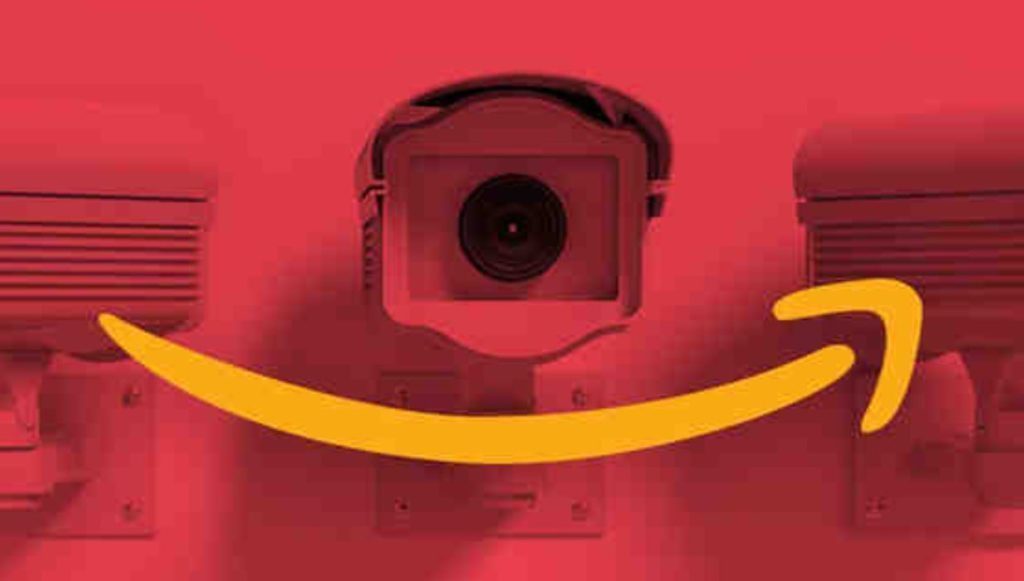By Aaron Kesel
U.S. lawmakers are demanding that Amazon tell them more about how Ring, Amazon’s surveillance network, is protecting consumer data. They cited the potential for the sensitive footage “detailing the lives of millions of Americans” to fall into the hands of hackers and foreign spies.
On Wednesday, five Democratic lawmakers made their concerns public about potential security vulnerabilities in Ring’s systems and the sharing of Americans’ home security footage with research and development teams on foreign soil in a letter to Amazon CEO Jeff Bezos. The lawmakers stated that consumers have a “right to know” who is able to view the video captured by Ring’s devices.
“Millions of consumers use Ring’s products and services, which include internet-connected video doorbells, spotlight cameras and alarm systems,” the letter reads. “Ring devices routinely upload data, including video records, to Amazon’s servers. Amazon therefore holds a vast amount of deeply sensitive data and video footage detailing the lives of Americans in and near their homes.”
It continues: “If hackers or foreign actors were to gain access to this data, it would not only threaten the privacy and safety of the impacted Americans; it could also threaten U.S. national security.” Personal data can be exploited, the letter says, “by foreign intelligence services to amplify the impact of espionage and influence operations.”
The letter is signed by U.S. Senators Ron Wyden of Oregon, Edward Markey of Massachusetts, Chris Van Hollen of Maryland, Chris Coons of Delaware, and Gary Peters of Michigan who all support looking into Ring’s practices.
The letter goes on to highlight a January 2019 article by the Intercept’s Sam Biddle, who reported that Ring’s Ukraine research and development team—known as Ring Labs—was given “virtually unfettered access” to a shared Amazon server “containing every video created by every Ring camera around the world.”
The letter also references vulnerabilities, pointing to a TechCrunch report about Ring from earlier this month, in which security researchers discovered an exploit in Ring exposing device owners’ WiFi passwords by transmitting them in cleartext.
“These reports raise serious questions about Ring’s internal cybersecurity and privacy safeguards, particularly if employees and contractors in foreign countries have access to American consumers’ data,” the lawmakers wrote.
Included within the letter are several questions related to Ring’s data storage security practices: “Does Ring encrypt video footage, both in storage and transmission?” and “How regularly does Ring perform in-depth security tests, audits, vulnerability scans, source code reviews and penetration testing?” The lawmakers requested answers from Bezos and Amazon by January 6th, 2020.
It’s worth noting for readers that Amazon has begun (along with other companies that have a stake in facial recognition) lobbying for laws for facial recognition, or what they call “draft guidelines” that they feel that U.S. lawmakers should adopt. While many of the lawmakers’ questions will have to be answered by Amazon themselves, Activist Post feels that the underlying question of privacy is without a doubt answered by Facebook’s ads of Ring showing minor petty criminals on camera in a modern-day wanted poster that is Ring’s Crime News Network.
Ring pins these petty crime ads as “Community Alerts.” The company then encourages people to identify and report the petty criminals if they are spotted by the public. This, of course, raises ethical questions, and eyebrows all at once.
Although Ring states that each video shown has an associated report number, the police themselves aren’t actually vetting the footage before it’s shared as an ad for “Community Alerts.” So what’s stopping Ring posting a video of someone innocent simply because it didn’t get the scrutiny needed? Further, is Ring actively endangering petty thieves by publishing the videos? This author can imagine a scenario where a would-be thief is chased down by a mob. Is this really the type of society we want to live in, blanketed by Amazon surveillance cameras, while also skipping due process – i.e. innocent until proven guilty?
Amazon and Ring are also on the record working with police departments all across the U.S. to stage sting operations on would-be package thieves according to several media reports. Police have even offered some residents free Ring cameras, a terrifying prospect that police handed facial recognition spying devices to private citizens as a means to abuse them and surveil a neighborhood. Ring is known to have a “Police Portal,” built into its infrastructure; however, in the past, it has been said that police would need permission to utilize it, The Intercept reported.
Amazon seems hell-bent on creating a massive surveillance network, whether it’s through selling the FBI and law enforcement surveillance software like Amazon’s Facial Rekognition technology now under fire by a government watchdog for its lack of privacy, or Amazon’s Ring’s watch-lists.
Amazon employees who are against the company selling facial recognition technology to the government have protested the company’s decision to aid police surveillance. Over 20 groups of shareholders have sent several letters to Amazon CEO Jeff Bezos urging him to stop selling the company’s face recognition software to law enforcement.

